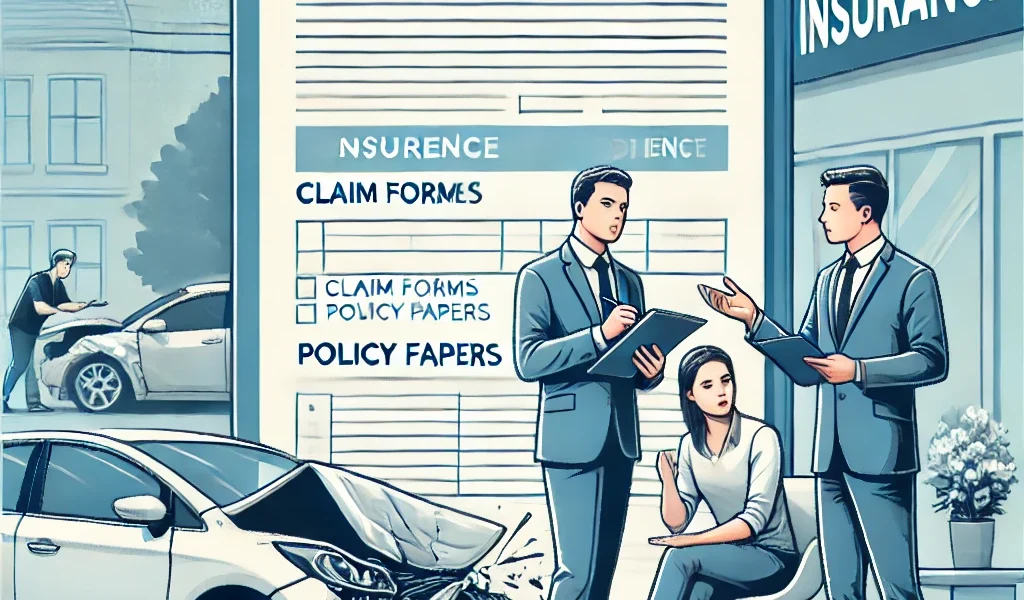Car accidents are stressful events, and dealing with insurance adjusters afterward can be just as challenging. These adjusters determine how much compensation you’ll receive for your claim, so handling the process correctly is crucial. In this DIY guide, we’ll walk you through the process of dealing with insurance adjusters to ensure you get the best possible outcome.
Understanding the Role of an Insurance Adjuster
Insurance adjusters work for insurance companies to investigate claims, assess damages, and negotiate settlements. Their main goal is to minimize the company’s payout while resolving your claim as quickly as possible.
Types of Insurance Adjusters
- Company Adjusters – Employed by the insurance company to handle claims.
- Independent Adjusters – Hired by insurance companies when additional assessment is needed.
- Public Adjusters – Hired by policyholders to negotiate on their behalf (usually in major loss claims).
Step-by-Step Guide to Handling Insurance Adjusters
1. Report the Accident Promptly
- Notify your insurance provider about the accident as soon as possible.
- Provide basic facts, but do not admit fault.
- Obtain a claim number for tracking purposes.
2. Gather and Organize Evidence
- Take clear photos of vehicle damage, road conditions, traffic signs, and injuries.
- Collect witness statements and their contact information.
- Secure a copy of the police report.
- Keep medical records and receipts related to the accident.
3. Be Cautious When Speaking to the Adjuster
- Expect a call from the insurance adjuster within a few days of filing your claim.
- Be polite but limit the details you share.
- Stick to the facts and avoid speculation.
- Never agree to a recorded statement without legal advice.
4. Understand Your Policy and Coverage
- Review your auto insurance policy to understand coverage limits, deductibles, and exclusions.
- Be aware of liability, collision, medical, and uninsured/underinsured motorist coverage.
5. Do Not Accept the First Settlement Offer
- Initial offers are often lower than what you deserve.
- Politely decline and request a detailed explanation of the calculation.
- Provide documentation to support your counteroffer.
6. Negotiate for a Fair Settlement
- Research repair costs from multiple auto shops.
- Highlight lost wages, medical expenses, and any ongoing treatment needs.
- Use a calm, professional approach in discussions.
7. Be Wary of Insurance Tactics
- Delaying Tactics – Adjusters may delay the process to pressure you into accepting a lower settlement.
- Denying Liability – The company might try to blame you partially to reduce the payout.
- Requesting Excessive Documentation – While documentation is necessary, excessive requests can be a stalling technique.
8. Consider Hiring a Public Adjuster or Attorney
- If negotiations stall, hiring a public adjuster can help maximize your settlement.
- An attorney can step in if you face a denial or bad faith tactics from the insurer.
Common Mistakes to Avoid When Dealing with Adjusters
1. Admitting Fault Prematurely
Even if you believe you were partially responsible, never admit fault without legal consultation.
2. Accepting a Quick Settlement
Adjusters may offer a fast payout to close the case, but this often undervalues your claim.
3. Signing Documents Without Understanding Them
Never sign a release or waiver without carefully reviewing the terms.
4. Underestimating Future Medical Costs
Injuries sometimes require long-term treatment, so ensure future medical expenses are covered.
5. Not Keeping Records of Communications
Always document your interactions with adjusters, including emails and phone conversations.
Final Thoughts
Dealing with an insurance adjuster after a car accident requires patience, preparation, and negotiation skills. By understanding their tactics and following the right steps, you can secure the compensation you deserve. Stay informed, stand your ground, and seek professional help if necessary. Taking control of your claim ensures a fair and just resolution for your losses




